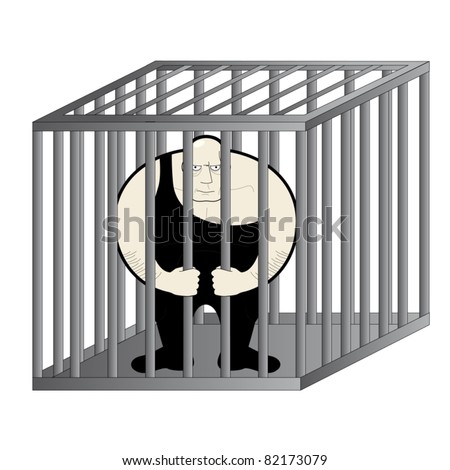A Voice from the Heart
Of Author and Country
As Marx said in the Communist Manifesto, a man should, in a utopian society, be free to "hunt in the morning, fish in the afternoon, heard cattle in the evening and criticize after dinner." Mikhail Khodorkovsky must have just finished his dinner.
Кодорковску has been held in Russian penal camps for a decade due to "atrocities committed as the head of the Юкoс Oil Company."

Well, he might not actually be that size ...
Now, he distances himself from the other inmates around him who seem to be "dead to the world" and immerses himself in current events and the modern goings on of his nation. Khodorkovsky letter to the NY Times is his assessment of the state of affairs of Russia as well as an insight into what he believes would help to solve some the crises not just in his motherland but also throughout Asia.
After pointing out recent shortcoming sin the Russian education system and discussing the decrease in production levels of Russia as compared to parts of East Asia and the West, Khodorkovsky points to the head of the Russian state and criticizes the centralized power in modern Russia, saying the amount of power Putin has varies very menially from the power of Lenin, Stalin, and other Soviet Union heads. "In a changing world, the leadership of the nation must be willing to change, and Putin is not willing to do this. He continues to try to live in the old ways; if he has his way, we shall all be reduced to dust."

Finally, Khodorkovsky closes by propagating collaboration between Russia and Western Europe.
For our people — the Russian people — this would become a real opportunity to overcome a situation that has existed since the 17th century, and to bridge the gap that has formed between the limited number of Russians who have a notion of modern Europe and live by its standards, and the rest of the country’s population, the many millions whose dream of a better life has been unscrupulously exploited for centuries by politicians who continue to preach a nonexistent “special way” for Russia that only leads people deeper into misery.
Khodorkovsky seems to truly believe that collaboration is one of the most important facets of being human, and therefore we have a mandate to come together in order to solve the social, economic and ecologic problems which face us both as individuals and, specific to this article, as societies.
No comments:
Post a Comment